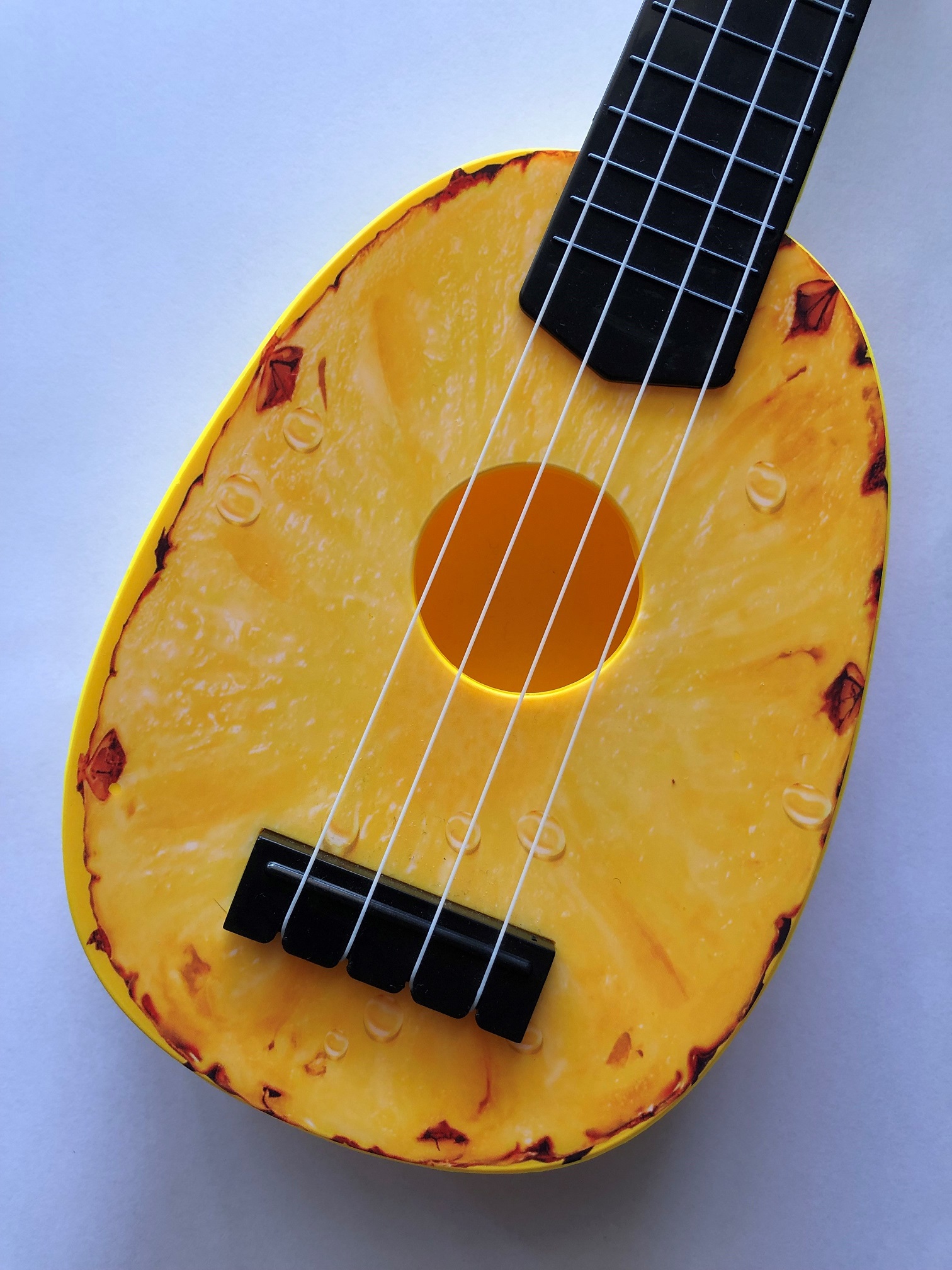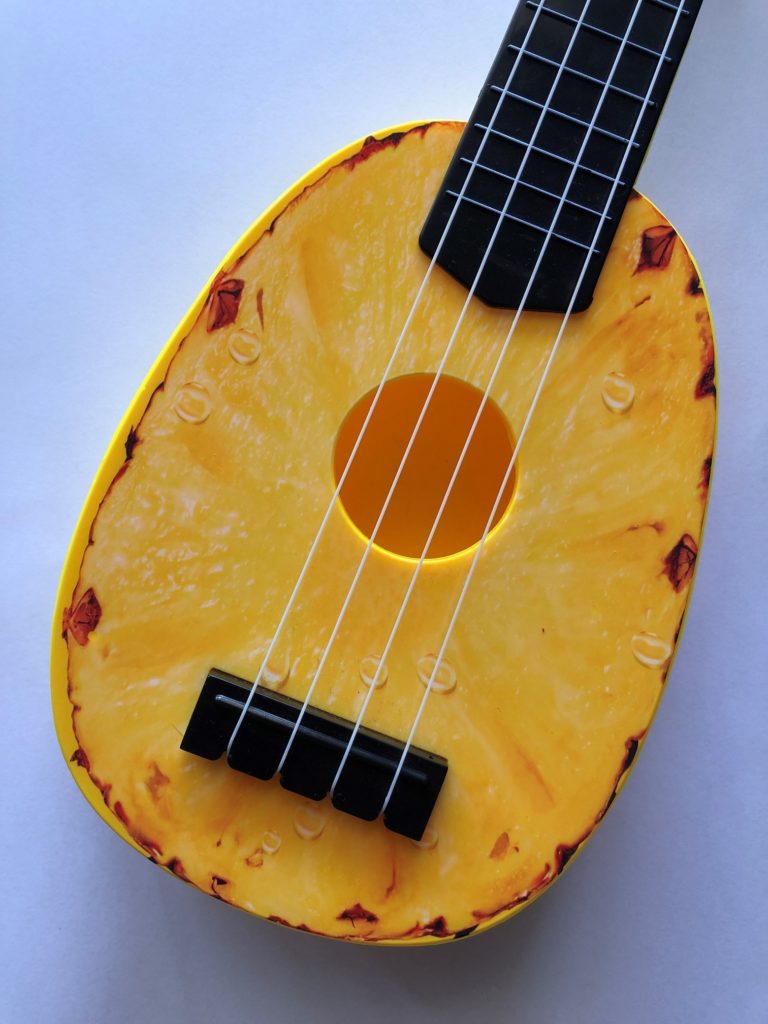

The predominant answer to this question is yes, but there are some exceptions. Lets look at a few variables to answer this question in some detail.
Instrument Quality
Instruments can have a huge variation in quality that can range from kids toys to high quality professional instruments.
Some kids toys, like the pineapple ukulele pictured here, are not likely to benefit at all from new strings unless a string is broken.
The pineapple ukulele is a rather extreme example of a poorly made instrument, but it does introduce some topics key to answering the question posed. This ukulele essentially lacks the basic traits that allow for good string tuning and intonation.
Instruments need good structural integrity not to deform in shape, which can cause the string length to change unintentionally during tuning or playing of the instrument. A good string attachment method on the bridge and good machine tuners also help maintain the string length and tension accurately. Instruments also need to have precisely placed frets, nut and saddle to ensure good intonation can be achieved. Unfortunately, the pineapple ukulele as neither good structural integrity, nor good intonation. In short, it cannot stay in tune due to a very poor design, and will therefore never sound good regardless of the condition of the strings fitted to the instrument.
Fortunately, most instrument sold through major music store retailers will be far better in terms of manufacture and design compared to the pineapple ukulele which is essentially a kids toy.
String Age
Any instrument of reasonably quality that allows for good string tension stability and intonation will likely benefit from new strings.
Older strings become lifeless and dull sounding as the strings themselves, over time, hold natural oils from fingers and debris. After a while corrosion can also take place on the strings themselves. All of this can make tuning more difficult, impact on intonation, and lead to an increased chance of string breakage.
How often strings need to be changed is a subject for future articles, but generally the amount of use, string type, and storage conditions can determine to a large extent, how often strings should be replaced.
String Type
Some instruments are manufactured for a specific gauge or tension, or material of string, and moving away from the strings that they were designed for can impact negatively on their sound and playability. Often instruments can be adjusted to compensate for different string gauges and tensions, but this is not always the case.
The vast majority of instruments will work well with a wide variety of string choices, and it is often only by trial and error that a player will find a string of preference.
Conclusion
If you can’t remember the last time you changed your strings, change them. You might be pleasantly surprised by the brighter, more vibrant, inspiring sound produced by your instrument.
Strings By Post – in tune with your needs.